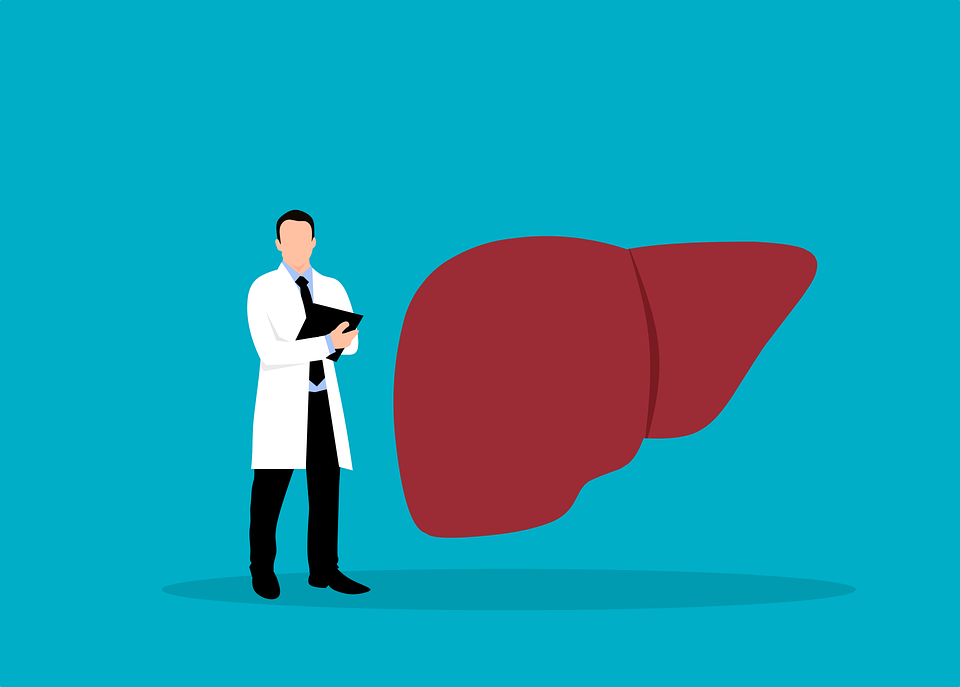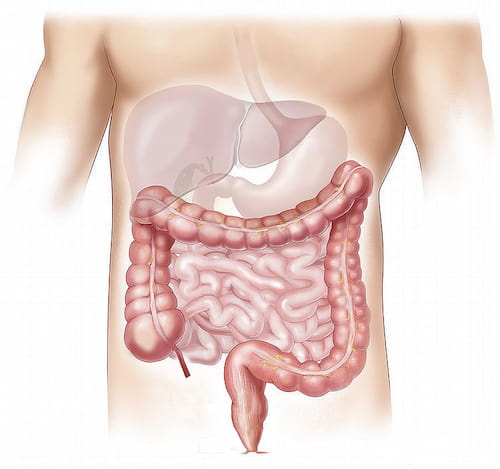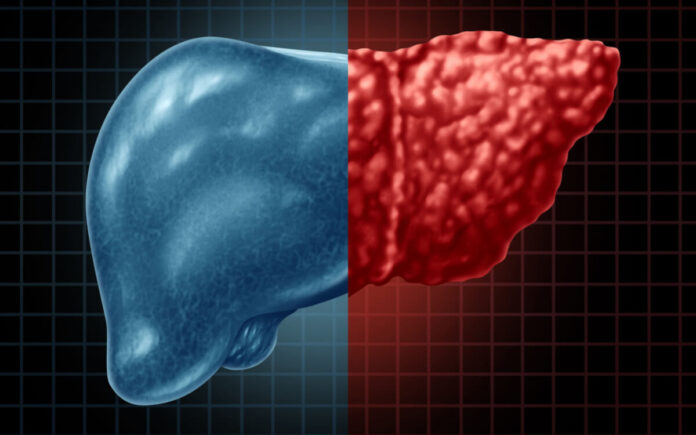Fatty liver disease is a prevalent health concern in people, especially those who are obese or old. As the name suggests, it refers to the fat build-up across the liver that can damage the organ and lead to severe complications.
Risk factors for this disease include obesity, a high-fat diet, high alcohol intake, and diabetes mellitus. In most cases, people with fatty liver disease are encouraged to modify their diets, exercise regularly, and lose weight.
Often liver conditions are related to heavy drinking, but this is a non-alcoholic liver disease, and consumption of alcohol or drugs has no relation to it.
In this article, we will explain how to reduce the risk of fatty liver disease, so you can live healthily!
Significance Of A Healthy Liver
The liver is one of the most vital organs of the human body. It makes sure that all the toxins and chemicals are removed from the body efficiently. In addition, the bile that it produces helps to break down all of the fats from the food consumed by a person.
Alongside this, it regulates blood sugar and keeps the immune system sturdy enough to defeat all diseases. Hence, optimal liver functioning is mandatory for the human body to work efficiently. To keep it working optimally, you need to understand what is NASH.

What Are The Risks Leading To A Healthy Liver?
A healthy liver may get exposed to various issues, which may lead to fatty liver disease. These are called risk factors. Some of the major risk factors in this regard are as follows:
1. Obesity
This is undoubtedly the most prominent reason behind the occurrence of this disease. Being overweight automatically makes one prone to having a liver that is accumulated with fats. Excessive consumption of junk food, inadequate eating timings, and overeating leads to obesity.
2. Unhealthy Lifestyle
An unhealthy lifestyle is also one primary reason behind the development of this liver disease. Being sedentary alongside an unhealthy diet contributes to this. With time, the liver may stop working optimally, which would affect the entire body.
Reducing The Risk Of Fatty Liver Disease
It’s possible to reduce the risk of fatty liver disease. However, for that, you would need to modify your lifestyle altogether and bring it back on the right track.
Some simple acts that you need to perform right now are as follows:
1. Switch To A Healthier Diet
A diet that is filled with nutrients is something that you need to adopt. A plate full of greens and reds, and yellows is the perfect plate to have for your lunch or dinner. In addition, making sure that every meal you have comes with as many fruits and vegetables as possible would make your body healthier.
Getting rid of ‘white foods’ is also a good idea when you decide to switch to a healthy diet. This means that you need to limit pasta, white bread, sugar, and rice from your diet and switch to healthier alternatives.
Adding greens to your food, furthermore, helps in reducing the chances of fatty liver. For instance, add spinach to your daily diet, and it will ensure that fat doesn’t accumulate around or inside the liver. This is why leafy greens are so efficient in fighting off fatty liver disease.
2. Remove Excessive Salt And Spices From Your Food
Another change that you need to bring into your life is removing the excessive salt and spices from you. All those food items that are filled with refined carbohydrates shouldn’t make it to your meals. Staying away from processed food items is what makes it possible for your body to remove the risks of liver disease.

3. Stop Being A Couch Potato
No matter how much you love lying down on your bed or staying on the couch and relaxing, you surely need to change this habit of yours. Why? It will turn you into a couch potato, making it tougher to adopt a healthy lifestyle.
Being active will help you get rid of a lot of health issues. For example, if you work out every day, you will soon see your body changing for good. Your organs would start working efficiently, offering you a healthier body overall.
4. Enhance The Intake Of Water
Drinking water helps flush out all the toxins and chemicals from your body. In addition, consuming enough water lets your liver keep enough reserves. This way, it doesn’t get dehydrated, which would enhance the risk of sickness or disease.
5. Avoid The Damaging Food Options
Certain food items are quite damaging to the liver. For instance, lean white meat in poultry has the tendency to affect the liver adversely. Alongside this, cheese is filled with fat, which is bad for the body. Red meat, fried food items, and excessively sugary items should be avoided to keep cholesterol checked.
6. Take Care of Your Diet
It is possible to reduce the risks of fatty liver diseases by bringing some changes in your diet. Reversing this disease is quite possible simply by making mindful life decisions.
7. Incorporate Beneficial Supplements
Incorporating the right supplements, alongside a healthy lifestyle, can be a pivotal step in managing fatty liver disease and promoting liver health. Among the myriad of supplements available, Livpure has emerged as a noteworthy option, designed specifically to enhance liver function and overall health.
Read Also
- The Role of Ingredients in Your Skincare: What to Look ForSkincare works best when you understand what goes into the products you use daily. Ingredients form the foundation of every formula and determine how the skin reacts over time. Each cream, cleanser, or serum has its own role, determined by its ingredients. Learning what to look for helps you pick products that help skin and… Read more: The Role of Ingredients in Your Skincare: What to Look For
- Your Guide to Finding a Trusted DentistChoosing the right dentist in Sandgate or your area is crucial for maintaining good oral health and achieving a confident smile. With countless dental practices to choose from, patients may find the task daunting. Data from the American Dental Association indicates that there are over 200,000 practicing dentists in the United States, highlighting the importance… Read more: Your Guide to Finding a Trusted Dentist
- Achieving a Defined, Balanced Facial Contour in SingaporeA well-defined jawline and a gently tapered lower face — commonly referred to as a V-shaped face — is a look many people aspire to. In Singapore’s beauty and aesthetic scene, treatments that help refine facial contours have grown in popularity as more individuals seek subtle, natural enhancements that boost confidence and balance facial features.… Read more: Achieving a Defined, Balanced Facial Contour in Singapore
- The Wellness Blueprint: How Your DNA Holds the AnswerGenetic testing is revolutionizing preventive healthcare by offering insights into individual health risks. By analyzing DNA, these tests provide a personalized health blueprint that can guide lifestyle and medical decisions. This approach, often referred to as DNA wellness testing, helps to optimize health naturally and prevent potential diseases. In recent years, genetic testing has become… Read more: The Wellness Blueprint: How Your DNA Holds the Answer
- Exploring the Benefits of Infusion Therapy in OKC: The Ultimate GuideUnderstanding Infusion Therapy: A Deep Dive into Its Purpose and Process What exactly is Infusion Therapy? Infusion therapy is an advanced medical treatment that delivers medication and nutrients directly into the bloodstream through a vein, typically via an IV (intravenous) line. This method is particularly beneficial for patients who require a concentrated dose of medication,… Read more: Exploring the Benefits of Infusion Therapy in OKC: The Ultimate Guide






